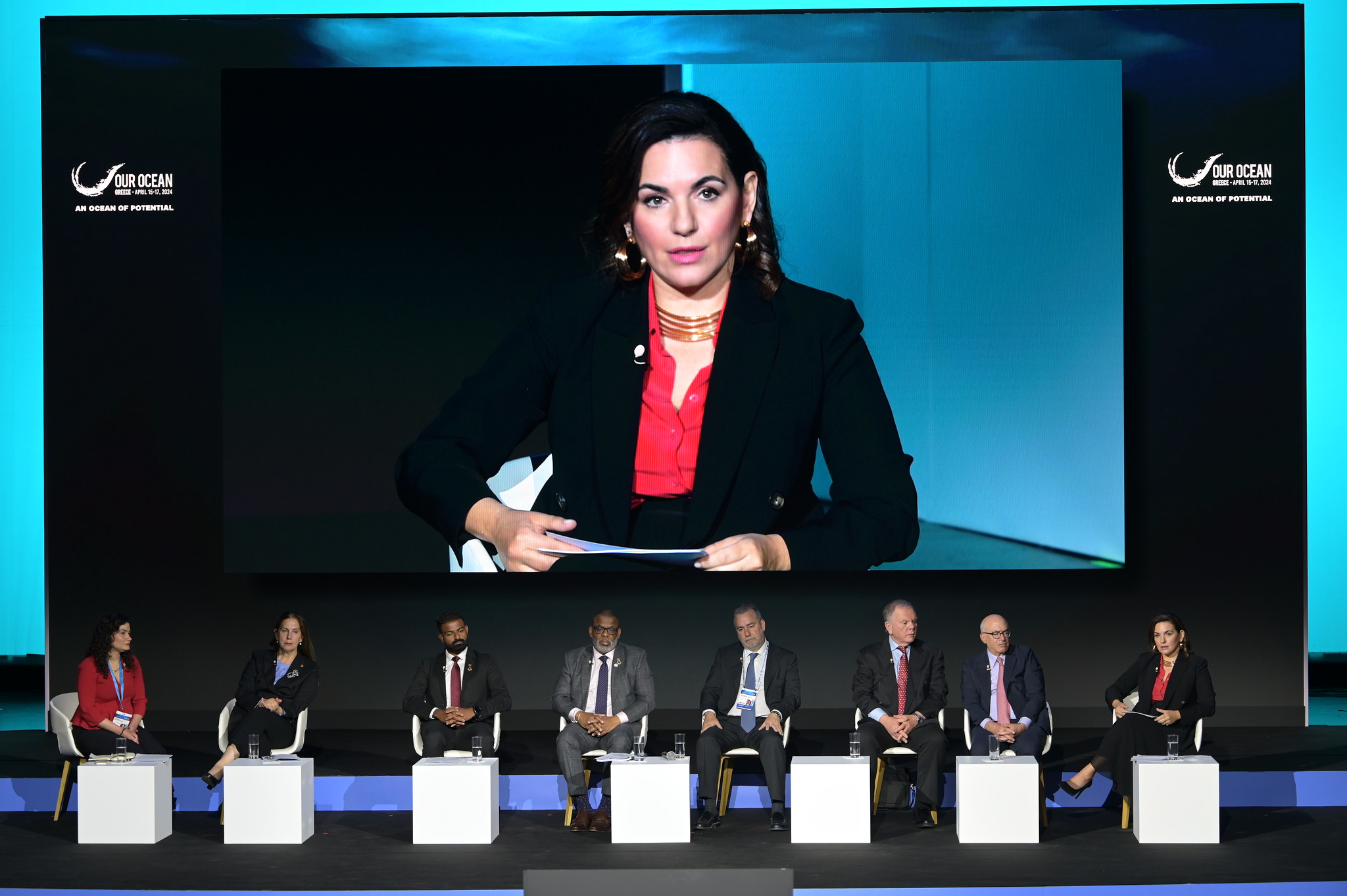Glimmers of hope at an otherwise critical point: Reflections on the 9th Our Ocean Conference

OOC 2024 © Our Ocean Conference
14.05.2024
April 2024 saw the 9th Our Ocean’s Conference, (OOC), where global leaders convened in Athens to address the urgent need for marine conservation. ERF’s Lenke Bálint and James Byrne were there and are pleased to be able to play a part in what is generally considered a critically underfunded area of conservation.
Although the conference was hailed as a success, there was a pressing concern that the pace of action may be lagging behind the escalating threats facing marine ecosystems and wildlife. At the start of the event, news had recently broken of a mass bleaching event devastating coral reefs worldwide, which experts linked to the dual forces of El Niño and human-induced climate change. Against the backdrop of a heightened sense of urgency, delegates from governments, NGOs, and philanthropic organisations rallied to pledge a total of $11.3 billion to implement 469 new commitments towards safeguarding the oceans. The commitments included pledges to establish marine protected areas (MPAs); combat illegal, unreported and unregulated (IUU) fishing; protect marine biodiversity; and fight climate change.
One of the bigger commitments came from the host country, Greece: to establish two new MPAs in the Aegean and Ionian seas, ban bottom trawling in its MPAs by 2026, and enforce this ban through monitoring and surveillance. (Currently bottom trawling, a fishing practice which destroys the natural seafloor habitat, still takes place in about 90% of Europe’s MPAs, according to a report co-authored by the NGOs Marine Conservation Society, Seas At Risk and Oceana.)
The European Union made 40 commitments toward ocean action worth $3.7 billion, which included support for sustainable fisheries, MPAs and ocean and climate research. The United States Agency for International Development pledged $103 million to establish new programs and bolster existing ones aimed to strengthen “marine preservation, build resilient blue economies, and address the impacts of the climate crisis.” And Japan newly registered 22 commitments at $1.3 billion on climate change, marine pollution and maritime security.
Yet, despite the increased and impressive array of commitments, the financial pledges fell short of previous years, raising doubts about the world’s commitment to ocean conservation. For example, delegates to the 2023 OOC, which took place in Panama, pledged $20 billion for the implementation of 341 commitments. And prior to the pandemic, the OOC that took place in Norway in 2019 raised $63 billion in pledges for 370 commitments.
Moreover, the pace of implementation remained a pressing issue. With only 7.9% of the global ocean currently protected, and a mere 4.2% classified as fully or highly protected, the world is far from meeting the ambitious targets, set forth by the Kunming-Montreal Global Biodiversity Framework, of protecting 30% of land and sea by 2030.
Areas of interest at the conference included urgent appeals for nations to ratify the Biodiversity Beyond National Jurisdiction (BBNJ) Treaty, also known as the High Seas Treaty, which will provide a legal framework for governing the high seas, including establishing MPAs and addressing the scourge of offshore oil and gas exploration. Thus far, 89 countries have signed but only four countries have ratified the treaty, with 60 needed to ratify it for it to take effect. Deep-sea mining also emerged as a particularly contentious issue, with nations like Palau, Vanuatu, and France advocating for a moratorium to prevent irreversible harm to deep-sea ecosystems.
Amidst these challenges, there were glimmers of hope. A new report distributed at the conference, using methodology laid out in a 2019 study in Marine Policy, found that 72% of protective measures announced at previous OOCs had been completed to date.
Looking ahead, the establishment of a new secretariat for the OOC, funded by Bloomberg Philanthropies and ERF grantee partner Oceans 5, offers a beacon of hope for future initiatives. As plans are laid for the 10th OOC in Busan, South Korea, the message is clear: the fate of our oceans rests in our hands. With steadfast determination and collective action, we can secure a sustainable future for generations to come. Theodoros Skylakakis, Greece’s minister of environment and energy, concluded, “The future belongs to our children and grandchildren, and for them, we must succeed.”